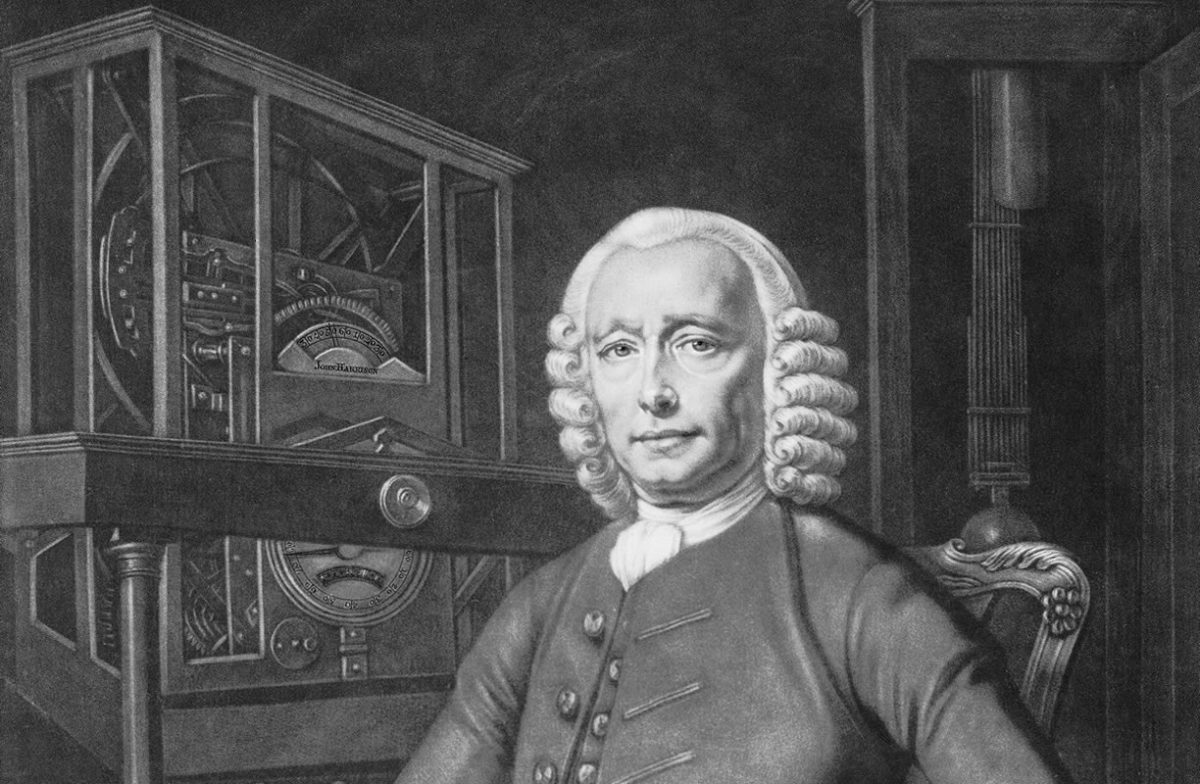
Ships need a reliable way to know their exact location at sea — and for centuries, the lack of a dependable method caused shipwrecks and economic havoc for every seafaring nation. In this week’s episode of the Futility Closet podcast we’ll meet John Harrison, the self-taught English clockmaker who dedicated his life to crafting a reliable solution to this crucial problem.
We’ll also admire a dentist and puzzle over a magic bus stop.
Intro:
Working in an Antarctic tent in 1908, Douglas Mawson found himself persistently interrupted by Edgeworth David.
In 1905, Sir Gilbert Parker claimed to have seen the astral body of Sir Crane Rasch in the House of Commons.
Sources for our feature on John Harrison:
Dava Sobel and William H. Andrews, The Illustrated Longitude, 1995.
William J.H. Andrewes, ed., The Quest for Longitude, 1996.
Katy Barrett, “‘Explaining’ Themselves: The Barrington Papers, the Board of Longitude, and the Fate of John Harrison,” Notes and Records of the Royal Society of London 65:2 (June 20, 2011), 145-162.
William E. Carter and Merri S. Carter, “The Age of Sail: A Time When the Fortunes of Nations and Lives of Seamen Literally Turned With the Winds Their Ships Encountered at Sea,” Journal of Navigation 63:4 (October 2010), 717-731.
J.A. Bennett, “Science Lost and Longitude Found: The Tercentenary of John Harrison,” Journal for the History of Astronomy 24:4 (1993), 281-287.
Arnold Wolfendale, “Shipwrecks, Clocks and Westminster Abbey: The Story of John Harrison,” Historian 97 (Spring 2008), 14-17.
William E. Carter and Merri Sue Carter, “The British Longitude Act Reconsidered,” American Scientist 100:2 (March/April 2012), 102-105.
Robin W. Spencer, “Open Innovation in the Eighteenth Century: The Longitude Problem,” Research Technology Management 55:4 (July/August 2012), 39-43.
“Longitude Found: John Harrison,” Royal Museums Greenwich (accessed Aug. 27, 2017).
“John Harrison,” American Society of Mechanical Engineers (accessed Aug. 27, 2017).
J.C. Taylor and A.W. Wolfendale, “John Harrison: Clockmaker and Copley Medalist,” Notes and Records, Royal Society Journal of the History of Science, Jan. 22, 2007.
An Act for the Encouragement of John Harrison, to Publish and Make Known His Invention of a Machine or Watch, for the Discovery of the Longitude at Sea, 1763.
John Harrison, An Account of the Proceedings, in Order to the Discovery of the Longitude, 1763.
John Harrison, A Narrative of the Proceedings Relative to the Discovery of the Longitude at Sea, 1765.
Nevil Maskelyne, An Account of the Going of Mr. John Harrison’s Watch, at the Royal Observatory, 1767.
John Harrison, Remarks on a Pamphlet Lately Published by the Rev. Mr. Maskelyne, 1767.
An Act for Granting to His Majesty a Certain Sum of Money Out of the Sinking Fund, 1773.
John Harrison, A Description Concerning Such Mechanism as Will Afford a Nice, or True Mensuration of Time, 1775.
Steve Connor, “John Harrison’s ‘Longitude’ Clock Sets New Record — 300 Years On,” Independent, April 18, 2015.
Robin McKie, “Clockmaker John Harrison Vindicated 250 Years After ‘Absurd’ Claims,” Guardian, April 18, 2015.
Listener mail:
Charlie Hintz, “DNA Ends 120 Year Mystery of H.H. Holmes’ Death,” Cult of Weird, Aug. 31, 2017.
“Descendant of H.H. Holmes Reveals What He Found at Serial Killer’s Gravesite in Delaware County,” NBC10, July 18, 2017.
Brian X. McCrone and George Spencer, “Was It Really ‘America’s First Serial Killer’ H.H. Holmes Buried in a Delaware County Grave?”, NBC10, Aug. 31, 2017.
Daniel Hahn, The Tower Menagerie, 2004.
James Owen, “Medieval Lion Skulls Reveal Secrets of Tower of London ‘Zoo,'” National Geographic News, Nov. 3, 2005.
Richard Davey, Tower of London, 1910.
Bill Bailey reads from the Indonesian-to-English phrasebook Practical Dialogues:
A few photos of Practical Dialogues.
This week’s lateral thinking puzzle was contributed by listener Oskar Sigvardsson, who sent these corroborating links (warning — these spoil the puzzle).
You can listen using the player above, download this episode directly, or subscribe on iTunes or Google Play Music or via the RSS feed at http://feedpress.me/futilitycloset.
Please consider becoming a patron of Futility Closet — on our Patreon page you can pledge any amount per episode, and we’ve set up some rewards to help thank you for your support. You can also make a one-time donation on the Support Us page of the Futility Closet website.
Many thanks to Doug Ross for the music in this episode.
If you have any questions or comments you can reach us at podcast@futilitycloset.com. Thanks for listening!
